Aziz Haniffa in Washington, DC
A United States-based non-partisan group claims there has been a dramatic rise in denial of visas to Indians, reports rediff.com
There has been a dramatic increase in denial of visas to Indians by the United States, according to a non-partisan organisation.
Stuart Anderson, Executive Director of the much respected non-partisan public policy organization, the National Foundation for American Policy that focuses on immigration issues, particularly those that pertains to professional visa categories, says new data culled from the US Citizenship and Immigration Services that shows a dramatic increase in the denial of petitions for both L-1 (intra-company transfer) and H-1B (temporary work visa) categories in the past four years from India-born professionals and researchers, compared to those from other countries, which cannot but lead to the perception of a deliberate bias by US authorities both at the USCIS and American consulates.
...
Dramatic rise in visa denial to Indians by US
Image: Such denials harm the competitiveness of US employers, says a report.The NFAP report titled Data Reveal High Denial Rates for L-1 and H-1 Petitions at USCIS, said that such denials harm the competitiveness of US employers and leave American companies with no option but to keep more jobs and resources outside the country.
It said the denial rate for India-born applicants for new L-1B petitions rose from 2.8 per cent in Fiscal Year 2008 to 22.5 per cent in FY 2009, a substantial increase that resulted in many employers being unable to transfer their employees into the US to work on research projects or serve customers.
Dramatic rise in visa denial to Indians by US
Image: The US denied more L-1B petitions in 2009 than in the previous nine fiscal years combined.The report, in illustrating the dramatic change, said, USCIS denied more L-1B petitions for new petitions for Indians in FY 2009 (1,640) than in the previous nine fiscal years combined (1,341 denials between FY 2000 and FY 2008).
"If one considers that in FY 2011 63 per cent of all L-1B petitions received a Request for Evidence and 27 per cent were issued a denial, that means US Citizenship and Immigration Services adjudicators denied or delayed between 63 per cent to 90 per cent of all L-1B petitions in 2011," it said.
Dramatic rise in visa denial to Indians by US
Image: Denial rates rose from 11 per cent in 2007 to 17 per cent in 2011."USCIS adjudicators have demonstrated a capacity to keep skilled foreign nationals out of the US by significantly increasing denials, along with often time-consuming Requests for Evidence, despite no change in the law or relevant regulations," it added.
With regard to H-1B petitions, the report said denial rates increased from 11 per cent in 2007 to 29 per cent in 2009, and remained higher than in the past for H-1Bs at 21 per cent in 2010 and 17 per cent in 2011.
Dramatic rise in visa denial to Indians by US
Image: Denial rate in Canada only rose from two per cent to 2.9 per cent.Anderson, who served as head of policy and counsellor to the Commissioner of the Immigration and Naturalization Service from August 2001 to January 2003, said that while the denial of L-1 petitions rose from 2.8 percent in 2008 to 22 per cent just a year later in 2009, "a comparison during the same time period if you look at Canada, their denial rate from L-1 petitions only rose from two per cent to 2.9 per cent".
"So we find and hear from companies that they see the problems centered primarily on cases that are not getting approved involving people from India," he said.
Dramatic rise in visa denial to Indians by US
Image: It also raises questions about the US government's commitment to maintaining a stable business climate, says Anderson.Anderson said that this "dramatic increase in the denial rate and request for evidence for employer petitions has taken place without any change in the law or regulations," and thus argued that "it raises questions about the training, supervision and procedures of the career bureaucracy that adjudicates petitions."
"It also raises questions about the US government's commitment to maintaining a stable business climate for companies competing in the global economy," he added.
Dramatic rise in visa denial to Indians by US
Image: Anderson says the denial has been a more recent phenomenon.Asked if it's a sort of no-brainer that the denial rate and request for evidence would be higher for India because evidently the highest number of petitions are received on behalf of Indian nations or if this discrepancy showed something a little bit more sinister, Anderson told rediff.com that it's not such the total denials being higher, but when you breakdown the country specific data, "you see much higher denial rates for Indian applicants".
And, he reiterated that "it's been a more recent phenomenon because as I point out, the denial rate was closer to two per cent in 2008 and then you are looking at over 20 per cent just a year later, when it comes to transferring people with specialized knowledge."
Dramatic rise in visa denial to Indians by US
Image: It is hard to speculate exactly why this has happened, he says.He said: "It is hard to speculate exactly why this has happened and the most important thing is to get more acknowledgment from the US government that this is happening - that there is this disparity.
"That it is not just anecdotes as mentioned in the report, when in the past people from the federal government on this issue have said things like the denial is more a matter of perception.
"But these are hard facts that comes from the government itself that show a denial rate that has increased significantly," Anderson added.
Dramatic rise in visa denial to Indians by US
Image: Anderson says there is lack of reliability in the US.He emphasized that "one of the hallmarks of a good economy - whatever the country is and whatever the state is - is that there is a reliability for these actors in the economy to the extent that you get wild fluctuations in what are legal standards."
Anderson argued that "those kinds of things tend to be associated with economies that don't perform as well because there is not a reliability there for making investments that are medium or long-term and that's one of the concerns here - that you get a lack of reliability in terms of the established long-term business ties that encourage employers to find just other ways to deal with these things, which is quite frankly, not doing as much business in the United States."
Dramatic rise in visa denial to Indians by US
Image: L-1 visas issued in India fell by 28 per cent in 2011.An earlier report by the NFAP had said that the number of L-1 visas issued at US consulates in India declined significantly by as much as 28 per cent from 2010 to 2011, and this according to data obtained from the US Department of State.
According to that report, the official data from the State Department showed that L-1 visa approvals went from 35,896 in Fiscal Year 2010 to 25,898 in FY 2011, a drop of about 10,000 visas.
At the same time that L-1 visas issued in India declined by 28 per cent, L-1 visas issued in the rest of the world rose by 15 per cent - from 38,823 in FY 2010 to 44,820 in FY 2011.
Dramatic rise in visa denial to Indians by US
Image: Anderson says the decline shows there is something amiss.At the time Anderson argued that "the release of the L-1 visa data makes it difficult for US government officials to argue that nothing different is going on in India when compared with the rest of the world."
He said: "The information that L-1 visas declined in India comes after the US embassy in Delhi announced the number of H-1B visas issued there increased from 2010 to 2011."
Anderson said: "A decline of 28 per cent in L-1 visas issued in India from 2010 to 2011 at the same time that employers have seen an increase of 15 per cent in L-1 visas issued in the rest of the world, using the same law and regulations, indicates something is amiss."
Dramatic rise in visa denial to Indians by US
Image: The data raises policy questions.NFAP's analysis at the time concluded that the State Department data "show an enormous gap in visas issued as well as, it must be assumed, approval/denial rates between posts in India and the rest of the world, raising policy questions as to whether this great disparity is the result of a conscious policy at US posts in India".
CLICK HERE TOMORROW TO READ PART II OF THE SERIES.

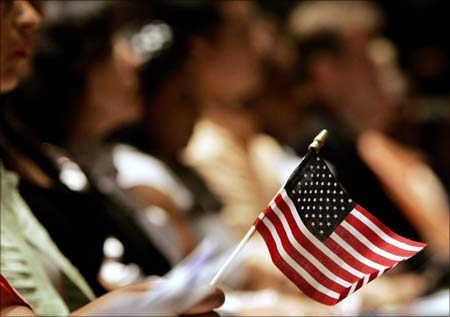
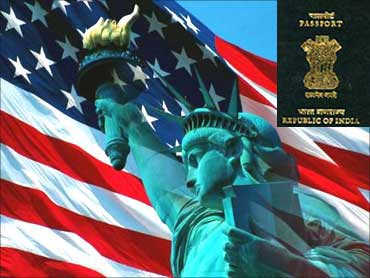
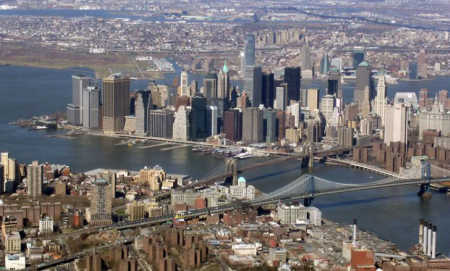
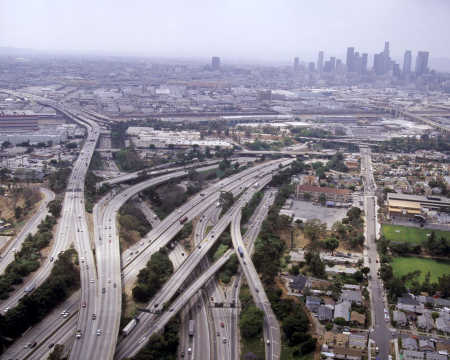
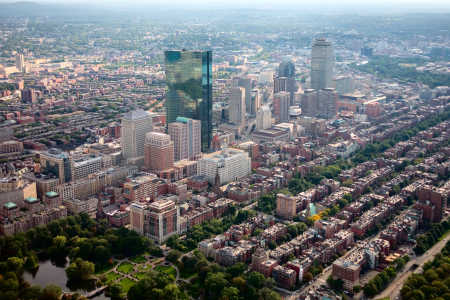
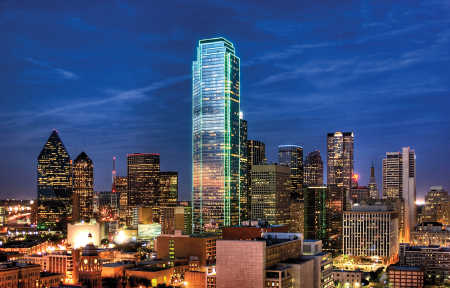
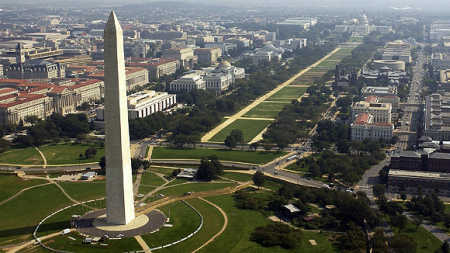
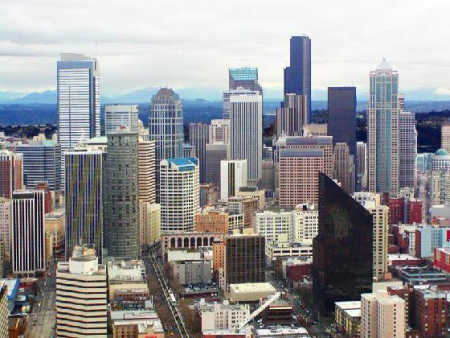
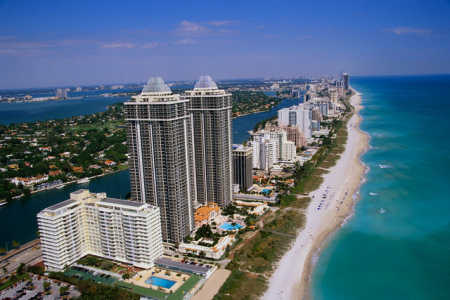
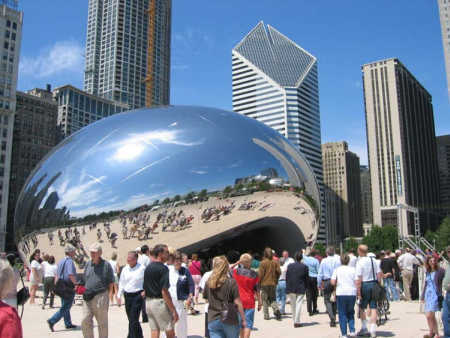
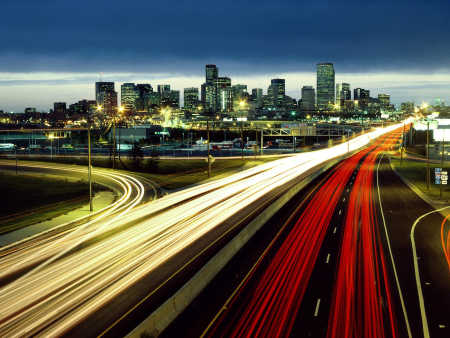
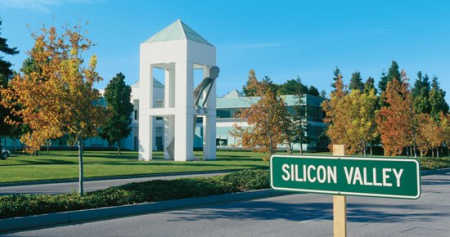
article